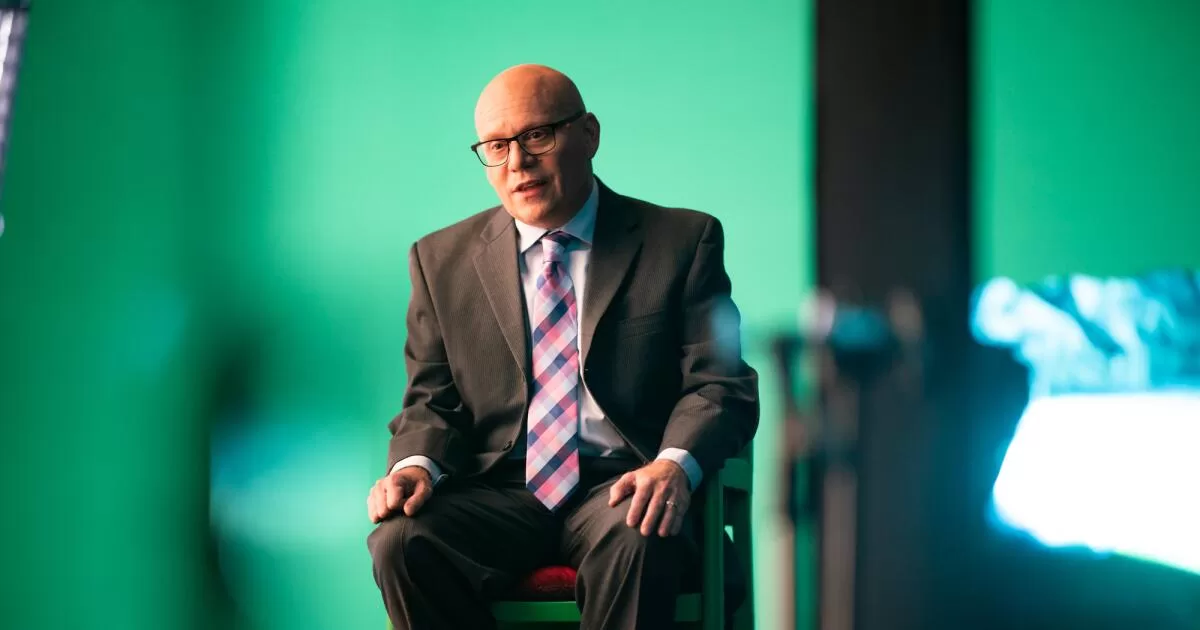As blunt methods for complex problems go, the Trump administration’s decision to tackle immigration by wresting thousands of children away from their parents was some Dark Ages stuff, a fearsome sign that in our current political landscape, open cruelty was gaining ground.
That grim, conscience-shocking time — which could materialize again if Trump wins the upcoming election — has been freshly examined in Oscar-winning filmmaker Errol Morris’ new documentary “Separated.” It takes its title from the book that NBC reporter Jacob Sobaroff (a key interviewee here) published about this polarizing “zero-tolerance” policy, born of an ever-worsening attitude toward immigration in recent decades, and which required public outrage and legal action for Trump to reluctantly end it via executive order in the summer of 2018. Even today, not all the affected children have been reunited with their parents.
It’s not surprising Morris would find this shameful chapter worthy of his hypnotic focus. Across his long career investigating America’s weirder corners and hidden histories, he has periodically cast his documentary gaze on the origins and consequences of state actions, most notably with “The Fog of War” and “Standard Operating Procedure.” Morris has a talent like few others at getting us to see something from the outside and the inside simultaneously, so that even the most politically fraught of issues — waging war, torture — can seem inextricably bound to the confounding depths of the subjects speaking into his trademarked interview device, the Interrotron.
But that also makes “Separated” an unusual Morris project in that the morality here is straightforward (as stressed by a couple of interviewees calling family separation “the worst thing I’ve ever seen”), while the controversial interviews — remember, Morris once made a whole film trying to understand Stephen K. Bannon — are missing. You won’t find anti-immigration attack dog Stephen Miller, the policy’s likely architect, or vilified Homeland Security head Kirstjen Nielsen, who signed her name to it, explaining themselves here (they declined participation). The political appointee from the Office of Refugee Resettlement (ORR) who Morris did get on camera, Miller fanboy Scott Lloyd, can barely feign amnesia during his non-responses.
The view we do get from the inside, however, is plenty illuminating and riveting, thanks to ORR’s former deputy director Jonathan White, a career social worker who still looks haunted by seeing his office’s mission — to protect unaccompanied migrant children — hijacked for abusive ends. He practically vibrates while articulating his regret at being unable to stop it.
White also memorably exposes the lie that the administration was simply enforcing America’s improper-entry laws by removing a parent from their child, as any arrest of a citizen would. Prosecuting border crossers was never the plan. The goal, White says, was to show the world they were willing to terrify families in order to stop people from coming. And reporters like Sobaroff, invited by the administration to facilities overcrowded with traumatized kids, many of them in cages, were meant to be the messengers of that ugly threat to the world. As the journalist admits to Morris, “I was a tool.”
The only nagging drawback to Morris’ otherwise crisp and chilling indictment is, unfortunately, not a small one: an interspersed narrative made with actors, centered on a Guatemalan mother and son making their way into the U.S. and caught in the separation system. In these interludes’ coolly composed sterility — they don’t work as short dramas or companion visuals — we can see the rare misstep of a doc god who’s done more than anyone to brilliantly hybridize nonfiction filmmaking.
One wishes that space in “Separated” had been saved instead for real stories told by the policy’s victims, or perhaps more historical context. Nonetheless, what we glean from the totality of the interviews and research, and Morris’ well-honed style of coalescing information, is damning enough.
‘Separated’
Not rated
Running time: 1 hour, 33 minutes
Playing: Opens Friday, Oct. 11, at Landmark Nuart Theatre, West Los Angeles
